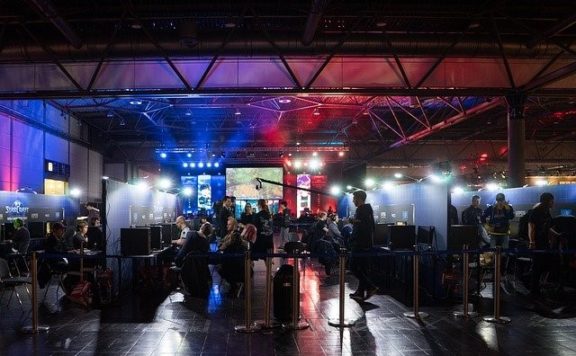League of Legends is a team-based video game in the multiplayer online battle arena (MOBA) genre. Powered by Riot Games, this is one of the most popular games in the world. LoL’s gameplay is based on strategy and plays. Players use over 100 special characters called champions to outplay one another in the arena. Since it is team-based, you must work with your team to destroy the enemy’s Nexus before yours is destroyed. Unlike traditional sports, which rely on physical strength, the esports industry title requires you to use your critical thinking skills. If you don’t have these, you must start acquiring them.
League of Legends esports refers to professional competitions of the video game. The first LoL tournament was held in Sweden in 2011. The most recent tournament was the 2022 League of Legends World Championship. Over the years, League of Legends has accrued over $29 million in prize money, 4,038 players, and 1,718 tournaments.
How LoL Has Impacted World Esports
The biggest annual League of Legends event is the World Championship. The League of Legends World Championship is a yearly LoL event culminating in regional competitions. League of Legends is one of the world’s most-watched esports. As such, it has a direct impact on world esports. The question is how. Let’s find out!
Esports Industry Boost

League of Legends’ popularity has helped boost the esports industry, making it one of the world’s most recognized and lucrative industries. Why is League of Legends so popular, you may ask? Well, we’ll tell you. The main reason for League of Legends’ popularity is the ease of accessibility.
It is one of the few highly popular games to offer free-to-play gameplay. Right from its inception, LoL was offered to players for free, and the only monetization was through cosmetics that were not compulsory for players to purchase. With this, League of Legends brought accessibility to the esports industry.
This model became common in MOBA games over time. The free-to-play model of LoL encouraged many players to pick it up, which led many players to get involved in the esports scene. This meant more money was being invested and made in the esports industry.
Over the years, League of Legends has contributed greatly to the revenue generated in the esports industry. In 2017 alone, this game generated $2.1 billion in revenue. Although this has dropped a couple of times in the years, the revenue generation from this title is still quite impressive.
Betting Industry Growth

Esports betting is a major aspect of the esports industry. With luck playing a role in some of the esports, it is no surprise that bettors keep trying their luck with bets. LoL betting takes the top popularity ranks alongside Counter-Strike: Global Offensive and Dota 2. These titles are often called “the big three” in the esports betting community.
In 2022, these three led the esports betting scene by bet size and volume, making up to 90% of the betting on most esports betting sites. The mature esports scene of League of Legends is also responsible for its success in betting. Since it is not a new title, the players are not so young and, as such, can bet legally and responsibly.
League of Legends’ popularity has brought about notable growth in the esports betting scene. LoL betting sites are very common since it is such a famous title. Even random links on web pages lead to esports betting sites for LoL. Titles like League of Legends made it easier to integrate betting into esports. The anti-betting stance of Riot Games brought about a boom in the esports betting industry.
Betting on League of Legends is technically an esports trend now. Since more betting means more money for the esports industry, the role of League of Legends in this development cannot be downplayed.
Pop Culture Influence

Esports culture and pop culture are very much intertwined, especially now that esports is gaining ground worldwide. As the esports industry grows in revenue, presence, and popularity, its place in popular culture is solidified. League of Legends has been around for over thirteen years.
The existence of this game transformed the video game industry and the esports industry. Esports went from video games played for rewards to something you can actively play, watch, bet on, teach, and even win a scholarship. It is considered an actual sport now. League of Legends integrated gaming into popular culture seamlessly.
With the advent of Twitch, streaming traditions began, and people began to choose their favorites. Like concerts, fans attend LoL matches or stream them, some wearing merch representing their favorite teams and players. Chants are also created to cheer them on, just like traditional esports.
As with everything good, there’s the bad [art. Friendly competition can become personal attacks, and fans can become obsessive stalkers and fanatics. While these are quite distasteful, they show the extent of LoL’s influence on popular culture.
Conclusion
The League of Legends competitive scene is no joke. It is quite lively, with competitions being held every year. Riot Games has the League Championship Series in Los Angeles, the LoL European Championship in Berlin, the LoL Pro League in China, and the LoL Champions Korea in South Korea.
Before LoL events, esports tournaments were mostly third-party events run by organizations with the approval of game developers and publishers. Everything changed when the LoL tournaments began. Riot Games came in with the League of Legends Championship Series, and esports careers suddenly seemed more doable than ever.







